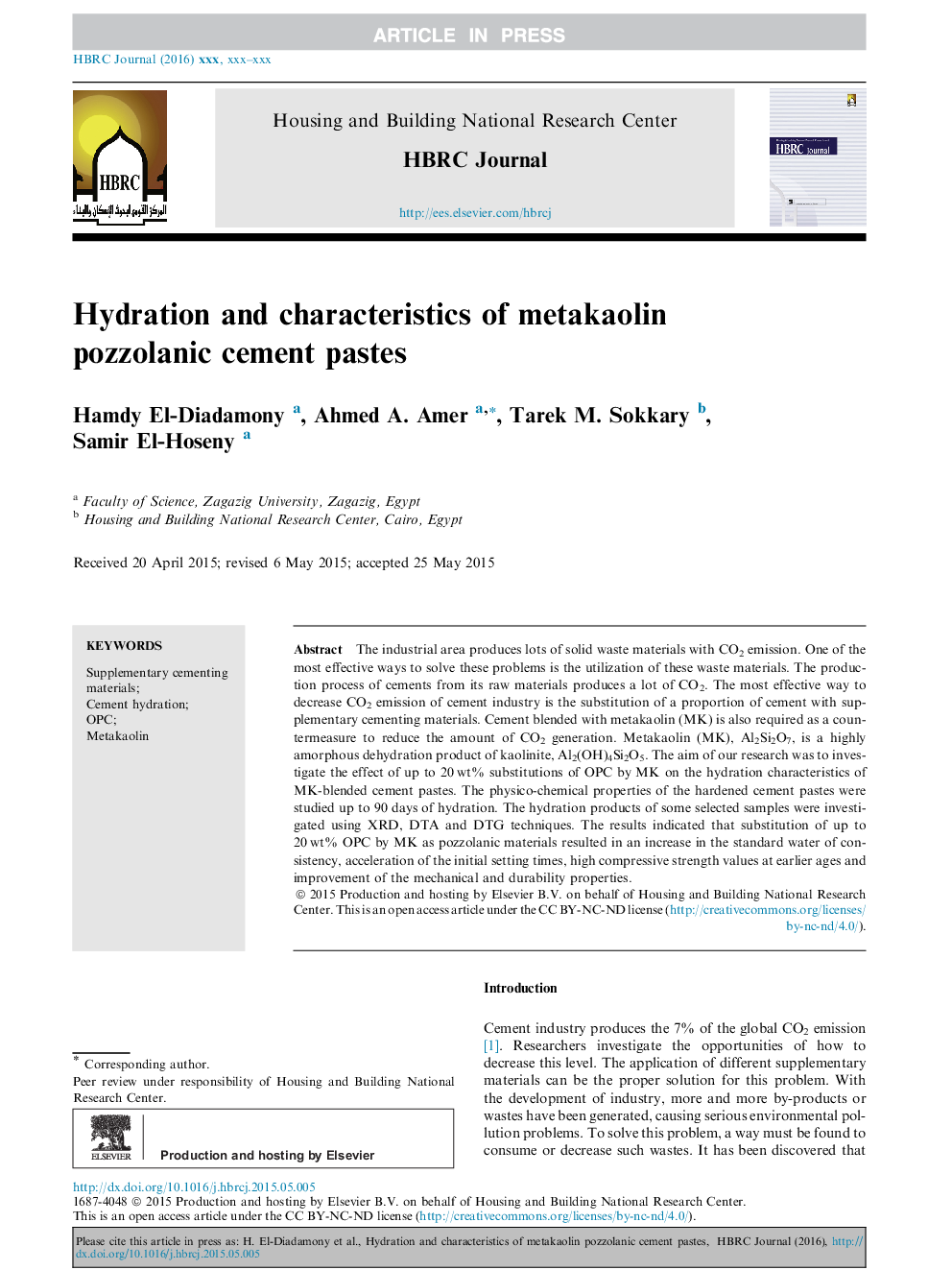| Article ID | Journal | Published Year | Pages | File Type |
|---|---|---|---|---|
| 8941614 | HBRC Journal | 2018 | 9 Pages |
Abstract
The industrial area produces lots of solid waste materials with CO2 emission. One of the most effective ways to solve these problems is the utilization of these waste materials. The production process of cements from its raw materials produces a lot of CO2. The most effective way to decrease CO2 emission of cement industry is the substitution of a proportion of cement with supplementary cementing materials. Cement blended with metakaolin (MK) is also required as a countermeasure to reduce the amount of CO2 generation. Metakaolin (MK), Al2Si2O7, is a highly amorphous dehydration product of kaolinite, Al2(OH)4Si2O5. The aim of our research was to investigate the effect of up to 20Â wt% substitutions of OPC by MK on the hydration characteristics of MK-blended cement pastes. The physico-chemical properties of the hardened cement pastes were studied up to 90Â days of hydration. The hydration products of some selected samples were investigated using XRD, DTA and DTG techniques. The results indicated that substitution of up to 20Â wt% OPC by MK as pozzolanic materials resulted in an increase in the standard water of consistency, acceleration of the initial setting times, high compressive strength values at earlier ages and improvement of the mechanical and durability properties.
Related Topics
Physical Sciences and Engineering
Engineering
Civil and Structural Engineering
Authors
Hamdy El-Diadamony, Ahmed A. Amer, Tarek M. Sokkary, Samir El-Hoseny,
